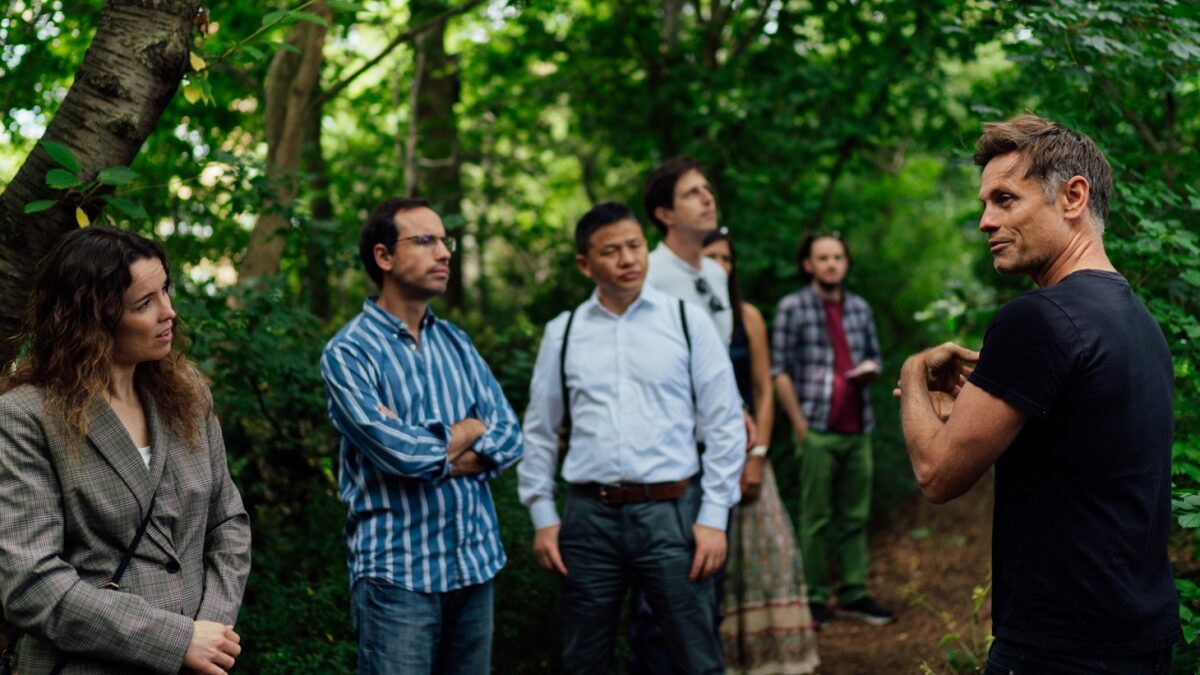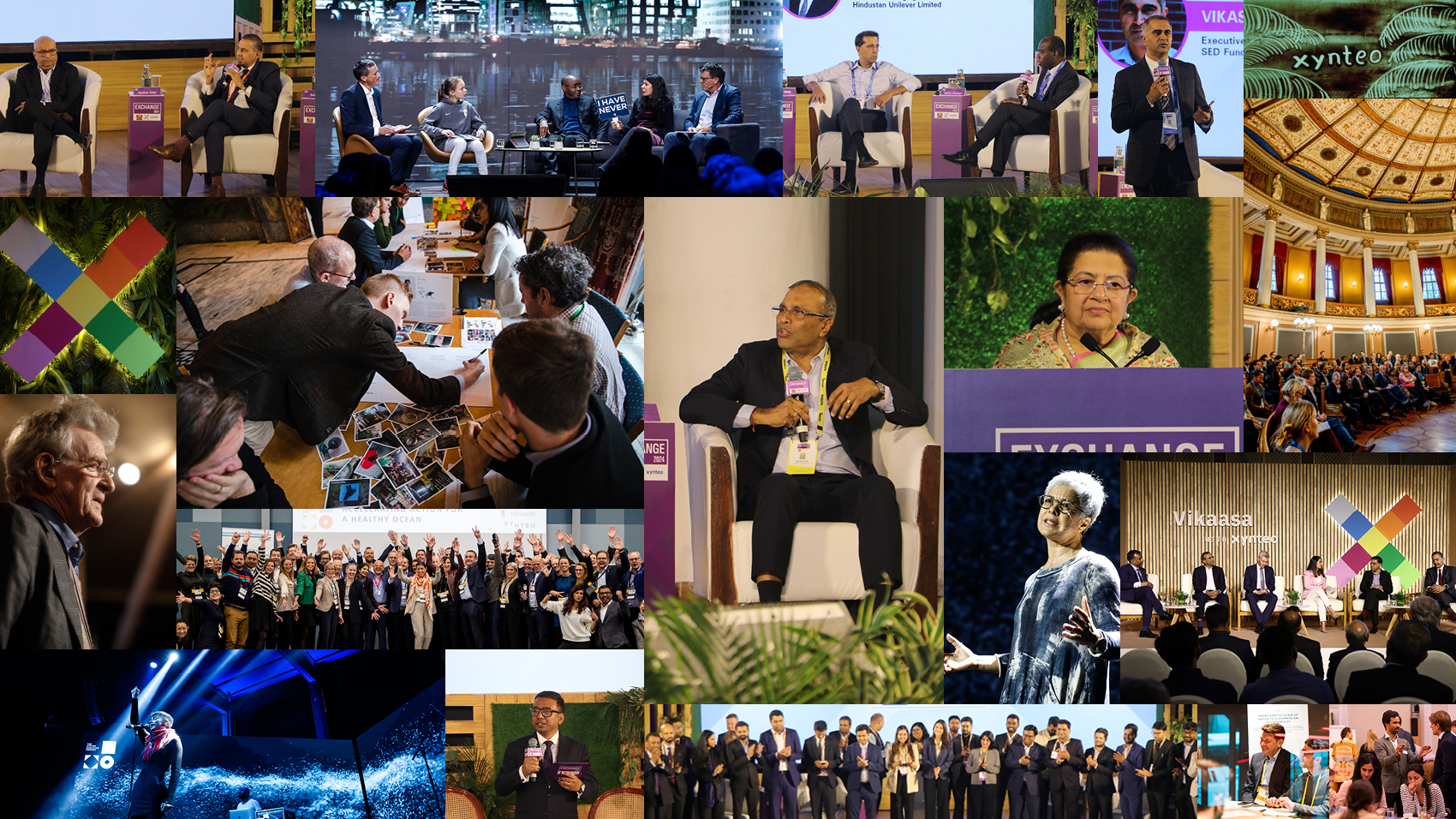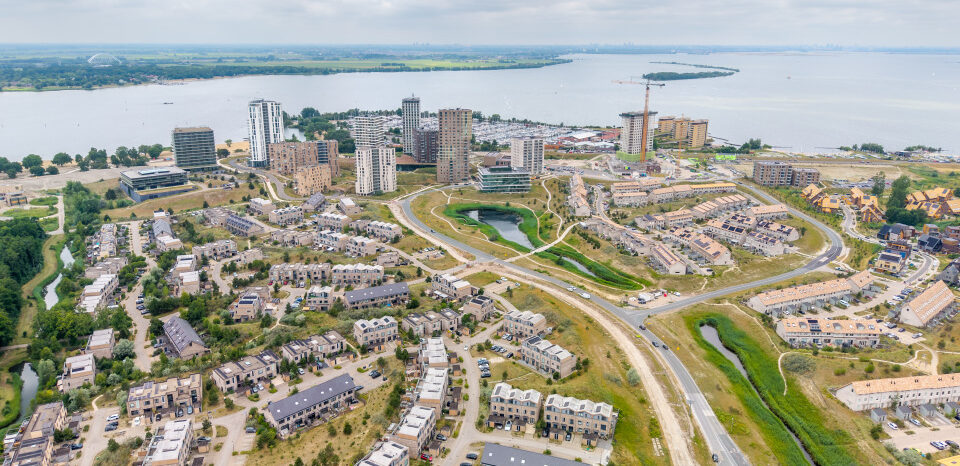In recent years there’s been a shift in the way some people think and talk about sustainability and the role of business in society. The ambition has moved beyond merely reducing harm, or achieving a healthier balance, to the notion of business regenerating the health of the wider communities and ecosystems their activities affect during their commercial activities.
But what does this idea of regenerative business mean in practice, both for individual leaders, their organisations and those they serve? And if it represents a way to improve our prospects for the future, how can we accelerate its development?
Over the last nine months, we set out to explore these questions under the banner of Xynteo’s Leadership Vanguard programme. For eight years this programme has been taking senior corporate and NGO leaders from a variety of organisations on a unique journey to experience first-hand the effects our dominant, extractive economic model is having on people and planet. And to learn how pioneers from all walks of life are mounting powerful, regenerative responses.
Through these encounters and experiences the intent is for these leaders to develop the insight, will and skill to shape their organisations as beacons of progressive and purpose-driven business.
A TALE OF THREE CITIES
Much of the programme takes place in virtual meetings, online learning, coaching and guided inquiry. However, we believe there is no substitute for exposure to these phenomena in real places, and so across 2022 and early 2023 we visited London in the UK, Cebu City in Philippines Rio de Janeiro in Brazil.
Our central theme for this cohort was Regenerative Business, and the 25 leaders (or Catalysts as we call them) zeroed in on four ‘systems of interest’ that they wanted to explore and improve through the programme, and which have guided our exploration:
- Distributed clean energy: how can we provide clean, green energy to those without?
- Regenerative farming and food: how can we feed the world’s population with less land and good food, while restoring and regenerating soil and native ecosystems?
- E-waste: how can we tackle the growing mountain of e-waste the rich world dumps in Africa and Asia?
- Re-greening cities: how can we re-green the world’s most nature-poor cities with native species of flora and fauna?
In the first of our Field Reports from each location, we can share some high-level thoughts on what we saw and learned and share the videos of these trips.
REGENERATING THE COMMONS, LONDON, JUNE 2022
In the 19th century the part of Central London around Tottenham Court Road and Goodge Street was home to some of the worst slums in the world. Yet in only 150 years it has transformed into one of the richest and most creative quarters of any global city courtesy of the city’s voracious hunger and power as a global hub, sucking in labour, ideas, resources, money and knowledge from all around the world and converting them into all manner of wealth.
But as with any transformation there are imbalances and flaws. For all its success, London’s wealth is still deeply unequal. Access to its resources and affordances are similarly imbalanced. Rather than being ‘regenerative’, too often living in the city takes its toll on people on those who live there.
The various changemakers we met in the city were all set on addressing these imbalances in different ways. A common thread that seemed to unite these responses in London was the revival of what is often referred to as the Commons: spaces and resources that are owned, shared and managed for the collective good, without privilege or exclusion. Below are some highlights from our experience of regeneration in London.
On a bright and sunny first afternoon in North West London, we met Agamemnon ‘Aga’ Otero, the force behind a project called Energy Garden, and a man with so much infectious energy I thought he must be connected to the mains supply.
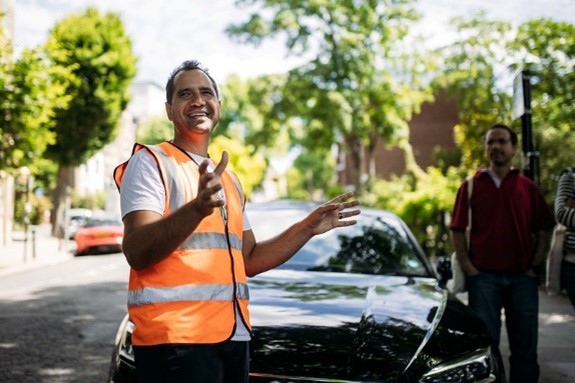
We got our hands dirty planting, building and weeding in one of his gardens, which is one of several marginal pockets of land by railway lines used to generate community solar power and to get local people growing and eating their own organic food.
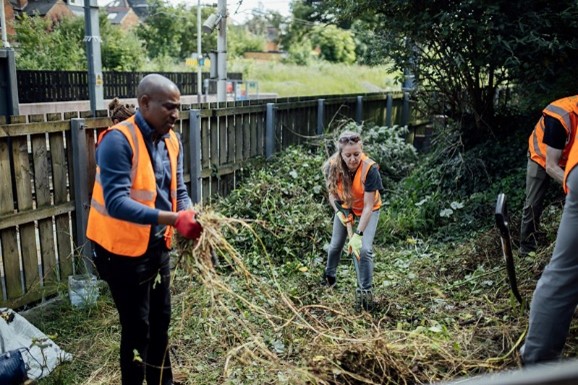
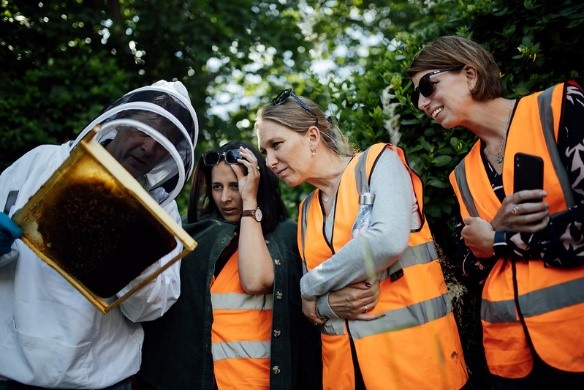
In a city dominated by land owned by the state or private enterprise, this micro farm / power station signified an attempt to give the community a measure of self-determination and the joy that comes from stewardship of something held in common.
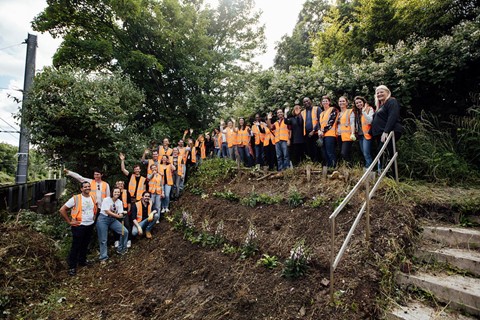
At Phytology, a WW2 bombsite that has been tended by the East End community as common land since 1977, we learnt how, by combining the arts, architecture, science and the humanities people can find their sense of place and belonging in an atomised and alienating city. Volunteers, artists and teachers look after this common space to ensure it continues to provide an ‘in-between’ space owned by and for the community.
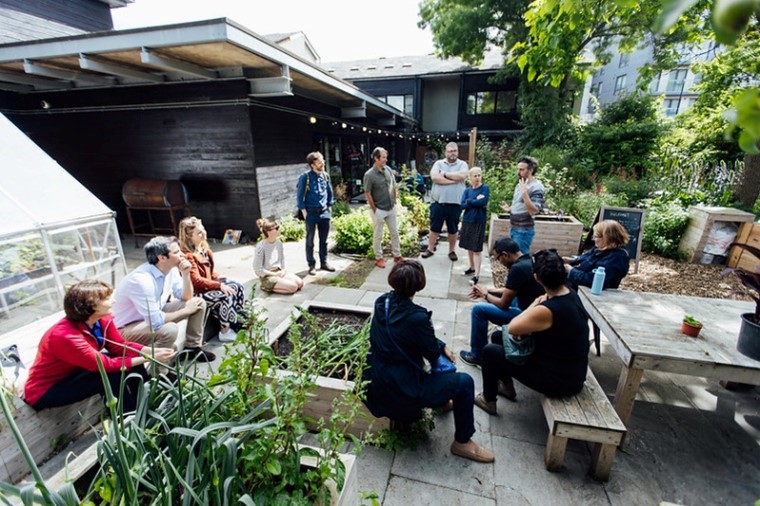
In addition to these ‘old’ kinds of commons we encountered the new. Here East is on the site of the former 2012 London Olympic Park in Stratford. It’s a start-up hub space focussed on growing major new businesses but equally bringing new jobs and opportunities to a formerly deprived part of East London. The interior – a kind of spatial, social and intellectual commons for the inhabitants – was set up to create the most favourable conditions possible for productive and creating thinking.
Eating lunch together with local guests and programme alumni at Silo in Hackney, the first zero waste restaurant, we learned about how Douglas McMaster and his team are striving to provide “delicious natural food whilst demonstrating that sustainable food business is financially viable”.
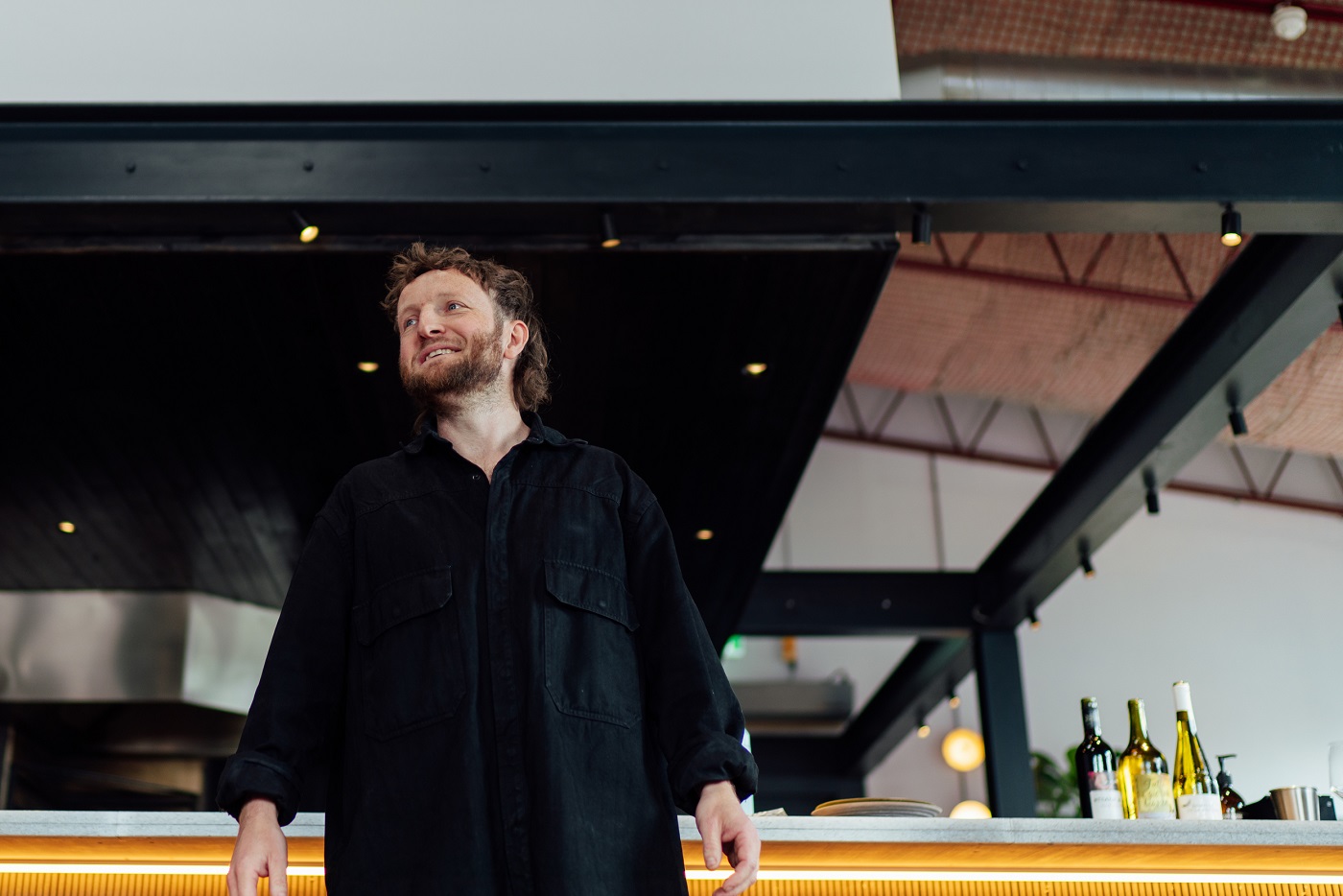
Their central idea to run a restaurant ‘without a bin’ has resulted in numerous innovations in circularity, from the sourcing of ingredients to the materials for plates and cutlery to the mass composting of food.
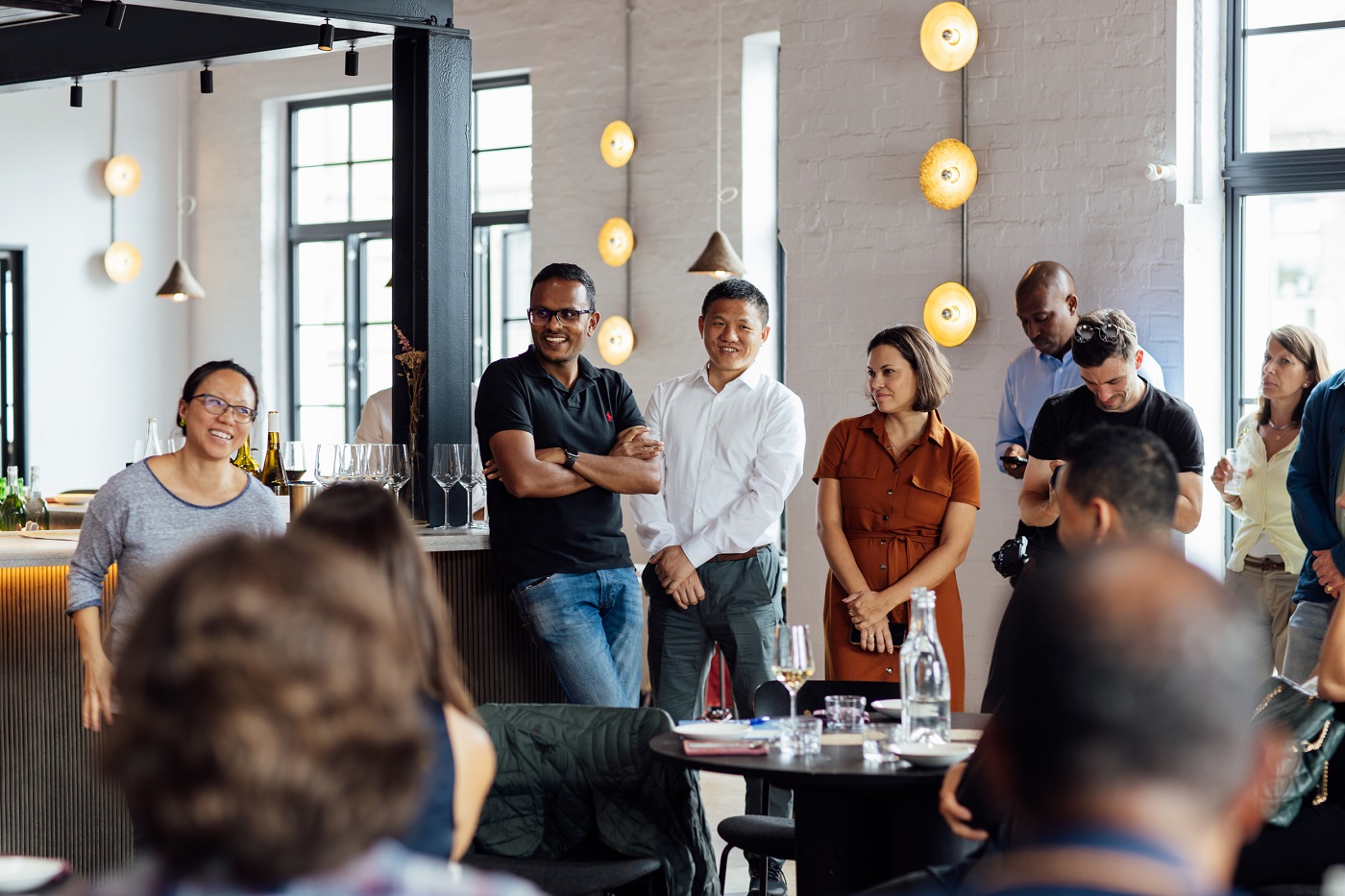
In all these cases, and the others we visited, people were carving out a shared space in which mutual help, stewardship for the common good (and future generations), connection to community and/or nature went hand in hand with the need to earn a buck, provide a service or grow a business.
In the major developed economies, the resurgence of these Commons perhaps signals a rediscovery of what has been lost in over two centuries of industrialisation and modernisation. It is a part of our human inheritance that is slowly, and at the margins, regenerating all around us, reducing our sense of passivity and alienation from city beyond our front door. The businesses of the future have much to learn from the ways of the old.
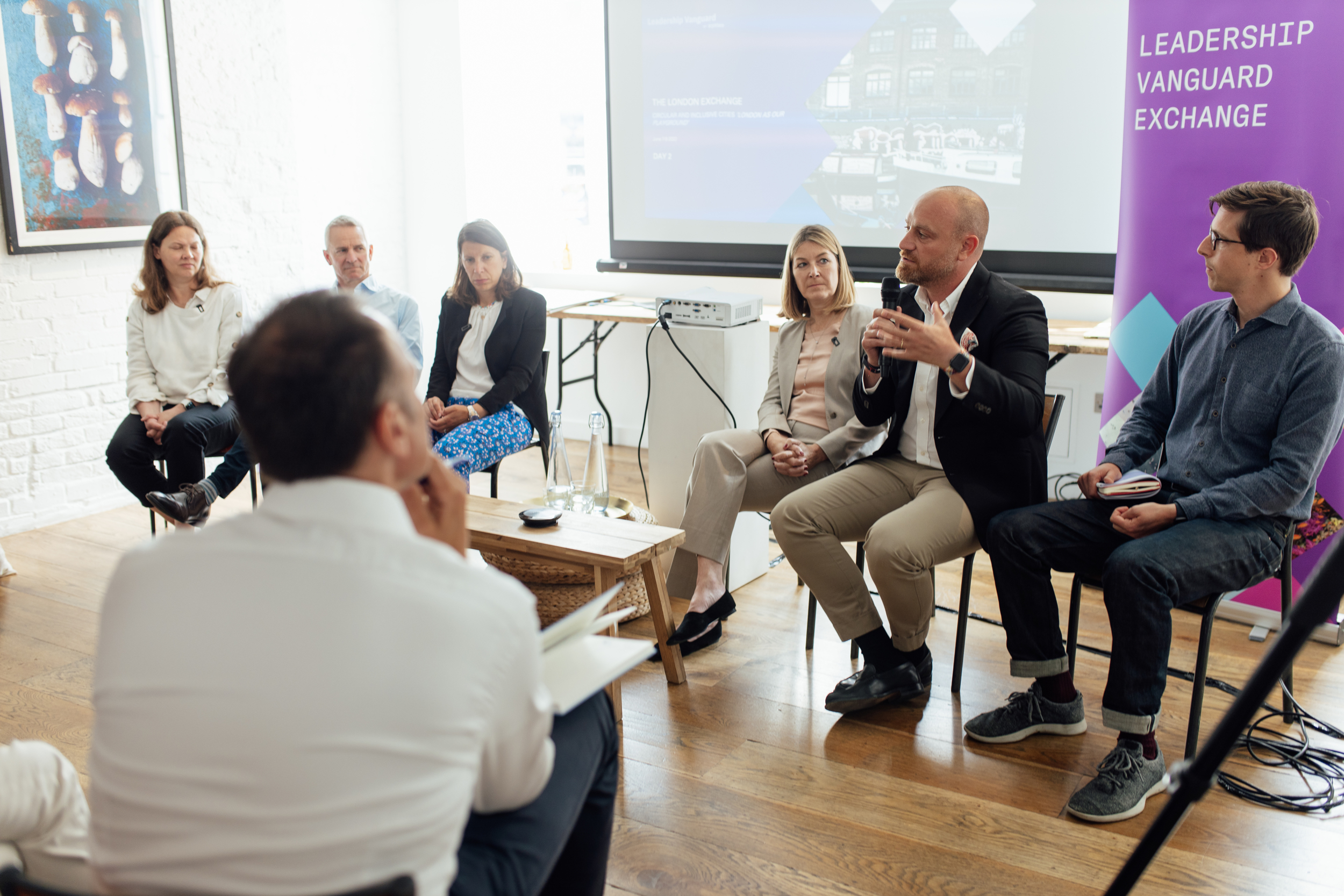
In our next Field Report, we travel to Cebu in the Philippines to learn how local communities, networked NGOs and social entrepreneurs are mobilising to sustain and regenerate natural systems in response to mounting climate threats.
Read part 2 I Read part 3
Stay up to date on Xynteo by following us on social media. LinkedIn I Twitter
Or contact us to find out how we can help your leaders and organisation create people and planet-positive growth.
